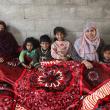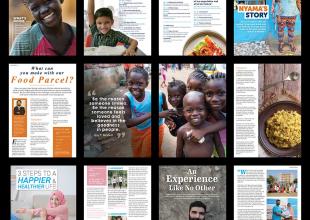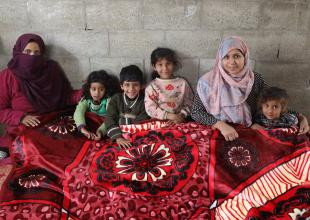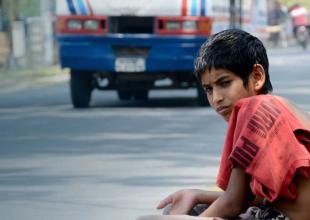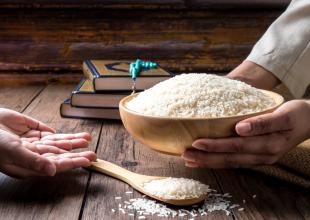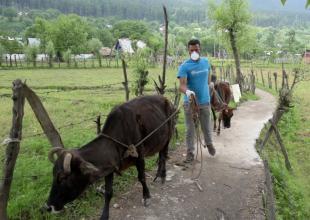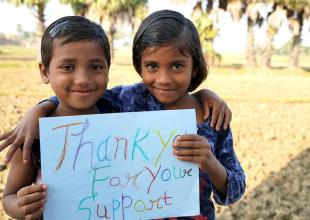Ramadan is the holiest month for Muslims, and it is a complex one at that. There is much to be said and done during Ramadan, the most notable of which being the fast. Fasting in Ramadan is one of the core practices as it is done to observe the fourth pillar of Islam, Sawm, which translates from Arabic as “to fast”.
Fasting for Ramadan is not quite as straightforward as simply not eating; there are various rules of Ramadan fasting that must be adhered to, and there are certain traditions that are customary for those observing the fast. If you’re new to the Muslim community or just want to find out more about fasting during Ramadan, keep reading as we explain the topic in detail below.
Ramadan Fasting Rules
The first step to understanding Ramadan fasting is to be aware of the rules surrounding it. It is common knowledge that Ramadan does not permit Muslims to eat or drink between sunrise and sunset, but what is often misunderstood is exactly who observes the fast. Many people assume every Muslim fasts, but this is not the case.
Whilst every Muslim should abide by the five pillars of Islam, including Sawm, their health must come first. For this reason, certain groups of people are exempt from the fast, with pre-pubescent children coming first on the list. Their bodies are small and need nourishment, and they find it difficult to stick to the fast with being so young which is why those who have not yet gone through the motions of puberty need not join in on the fast.
At the opposite end of the spectrum are the elderly who are frail and more likely to be in poor health. As a result of this, they are also exempt from fasting during Ramadan.
It’s not just the elderly who may be in ill health; anyone who is undergoing medical treatment or on vital medication are permitted to miss the fast as they nurse their bodies to full health.
Anyone who has travelled a distance will know how tiring it can be and how taxing it is on the mind and body, and it is for this reason those who are travelling do not need to fast.
In addition to the above, the Ramadan fasting rules list three instances in which a woman does not need to fast: if she is menstruating, if she is pregnant, or if she is breastfeeding.
If a person does not fit into any of the above groups, they must fast.
These are the basic rules of Ramadan, but there is more to the fast than just when it runs and who observes it.
Fasting Alternatives
If a person is exempt from Ramadan fasting, they have two options: to make back the missed days of fasting at another point in the year (this is the most preferable option), or to pay Fidya. Fidya is a charitable donation that Muslims who are exempt from the fast may pay if they are not expected to be able to make up the missed days of fasting.
Breaking the Fast
Between sunrise and sunset, Muslims are not permitted to eat or drink, but when daylight hours have come to an end, there are two meals that Muslims may eat at the fast breaking time: iftar and suhoor.
What Time is Iftar?
Iftar is the meal that is eaten after the sun has set. Due to the iftar time, it is often reminiscent of a dinner time meal.
Common Iftar Foods
It is common for Muslims to break their fast and commence their iftar meal with dates as this what the Prophet Muhammad (PBUH) did. Keeping fluids up is essential during Ramadan, and that’s why soup is commonly consumed at iftar after dates have been eaten. Chunky vegetable soup rich with beans, lentils, grains and pasta is a great way to up a person’s fluids whilst giving them nutritionally valuable foods. In addition to soup, fish and meat are commonly served alongside a multitude of vegetables, fruits, rice/pasta, grains and yoghurt in order to hit as many of the main food groups as possible.
What Time is Suhoor?
Suhoor is the pre-sunrise meal and is often based on popular breakfast foods.
What to Eat at Suhoor
Yoghurt, fruit, cereal, eggs, oats and wholemeal bread are favourites at this time of day as they provide slow energy release and lots of vitamins and vital food group nourishment.
Whatever Muslims choose to eat at suhoor and iftar, it is essential that ample water is drank. It’s common for some Muslims to experience mild dehydration during Ramadan – especially in hot weather where body fluid may be lost through sweating. That’s why making a conscious effort to drink during iftar and suhoor is so important.
Unintentional Fast Breaking
There are some reasons which may cause a Muslim to break their fast unintentionally, specifically for women.
What Breaks A Woman’s Fast?
As per the Ramadan rules, if a woman begins to menstruate, she must end her fast. The start of menstruation is unintentional and therefore doesn’t invalidate the days during which a woman has completed her fast. Instead, she should make up the days she cannot fast at another point in the year.
In a likely manner, if a woman finds out she is pregnant during Ramadan, she must end her fast. If she is not breastfeeding, she may make up the days of her fast at a later date, though if she is expected to continue to breastfeed until next Ramadan and beyond, she can pay Fidya.
Forgetting to Fast
If a Muslim forgets they are fasting and eats something or takes a drink by mistake, their fast is not invalid and they are permitted to continue fasting for Ramadan when they realise their error.
Brushing Teeth
Brushing your teeth will not break your fast so long as you make a conscious effort to not swallow the toothpaste or the water.
Vomiting
If you unintentionally vomit, you will not break your fast.
Intentional Fast Breaking
Should a Muslim intentionally break their fast and eat something or drink something on purpose in full knowledge that they should be fasting, they must fast for an additional 60 continuous days, or pay Kaffarah.
The End of the Ramadan Fast
When the ninth month of the Islamic year draws to a close, the fast is broken by Eid ul-Fitr celebrations. If a person has missed days of fasting to make up for Ramadan, they are forbidden from doing it during Eid.
Find Out More
If you have any additional questions about Ramadan fasting, please consult either your local Imam, or get in touch with us.


